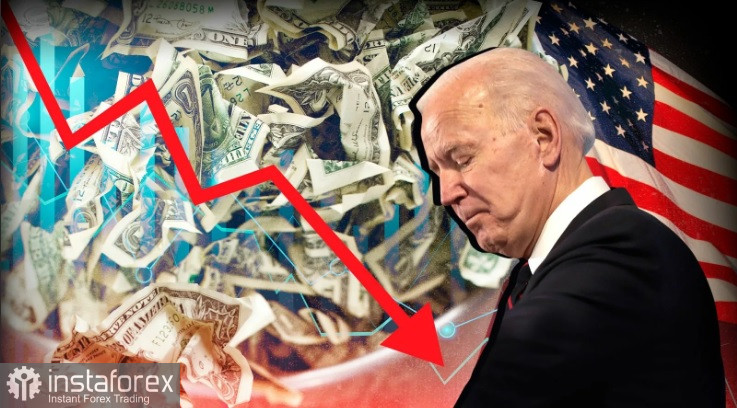
ECB President Christine Lagarde warned that a US default would have serious consequences to the entire world. However, she explained that she trusts the region, so she does not believe that they would allow such a major disaster to happen. That being said, Lagarde called on US lawmakers to set aside politics when discussing the debt ceiling.
Republicans stated earlier that they would try to negotiate a plan to raise the debt ceiling to $31.4 trillion while simultaneously cutting government spending. House Speaker Kevin McCarthy is expected to reveal the terms under which Republicans want Democrats to follow. In the past, President Biden has agreed that the Congress should approve an increase in debt without any conditions.
In February, Biden and McCarthy discussed the debt ceiling. Then, at the end of March, Biden asked McCarthy to outline the spending cuts that Republicans would like to see in exchange for raising the debt ceiling. Before his speech at the New York Stock Exchange, McCarthy tweeted that the longer President Biden takes to respond and reach an agreement, the more likely his administration will face the first default in US history.
US Treasury Secretary Janet Yellen has repeatedly warned that a US debt default could lead to an economic and financial disaster, and Fed Chairman Jerome Powell also made it clear that investors should not rely on the US central bank to protect the economy if the debt ceiling is not raised in time.
Although debates about the debt ceiling are often called political theater, the more this issue gains significance, the more the unthinkable scenario of a US default will put pressure on markets. In fact, at the end of January, when the US reached its borrowing limit of $31.4 trillion, the US Treasury already began taking measures such as suspending investments in certain government accounts to pay all the country's bills. If the debt ceiling is not raised by June 2-23, the federal government could run out of money.
Back in August 2011, Republicans and Democrats could not agree, so they were able to raise the debt ceiling just a few hours before the deadline. It had a significant impact on the markets at that time, in which stocks fell, dollar fell, and credit spreads widened. A similar scenario could happen at this happen.
While politicians fight over this issue, market volatility is likely to increase, especially as the deadline is getting closer.
 English
English 
 Русский
Русский Bahasa Indonesia
Bahasa Indonesia Bahasa Malay
Bahasa Malay ไทย
ไทย Español
Español Deutsch
Deutsch Български
Български Français
Français Tiếng Việt
Tiếng Việt 中文
中文 বাংলা
বাংলা हिन्दी
हिन्दी Čeština
Čeština Українська
Українська Română
Română

